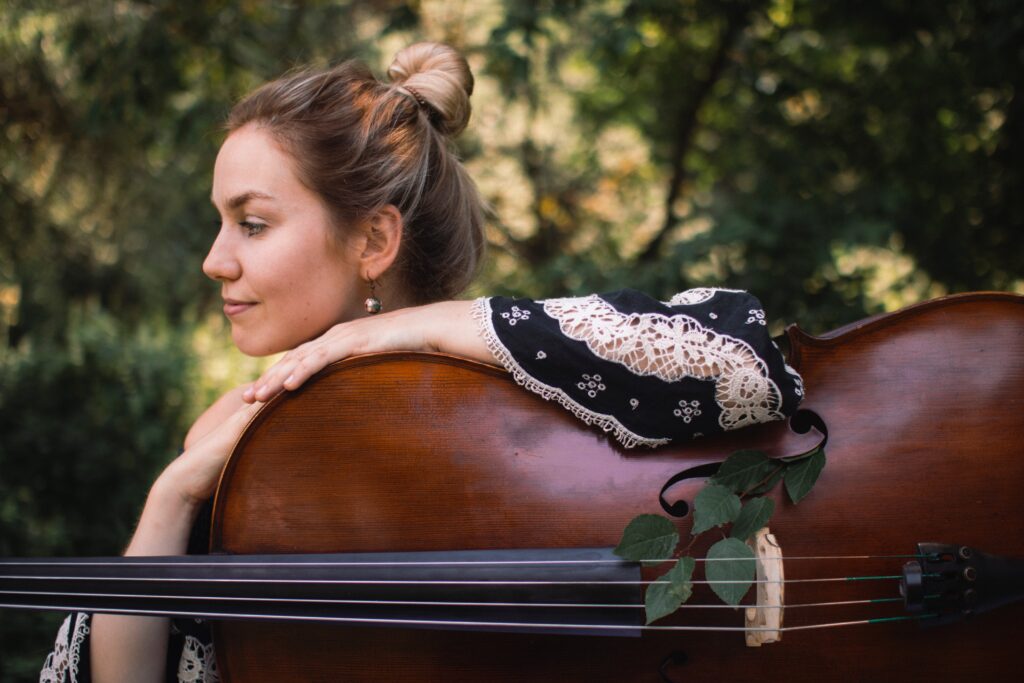“Hello Cello Positions”
VSA Cello faculty, Mrs Jisoo Ok will lay out the simple step-by-step approach to learning the
positions. The classes will include:
* Learning fun, short and repetitive pieces to gain confidence in shifting and reading notes
* Playing famous pieces from the classical and traditional repertoire arranged for duets
These classes will be run remotely only in 3 sessions for the duration of 3 weeks each session and lasting from 3 to 9 weeks, with 5-6 students on
Three options will be offered:

Option 1. Three 40 min classes for 2nd position
Option 2. Six 40 min classes for 2nd & 3rd positions
Option 3. Nine 40 min classes for 2nd, 3rd & 4th position
Mrs Jisoo Ok published her first cello book called Hello Cello Positions! 2nd Position.Book written for cellists in Suzuki book 2-3. The book is available on amazon: https://www.amazon.com/dp/1735085901
The 3rd and 4th position books will be available later this month as well!
“Review Like a Virtuoso”
This course is designed for intermediate and advanced violinists who wish to brush up on already learned or catch up on pieces ‘skipped’ through careful selection of pieces in Suzuki book 1-4 which address specific topics of violin technique such as: staccato, spiccato, ricochet or legato and more!
Just like all famous artists, we will start by gaining a solid foundation on the pieces being selected for review, followed by developing an ability to share & adopt each other’s interpretation, leading to developing one’s artistic, virtuosic language.
Students will be given the opportunity to lead piece(s) of their choice.
This course consists of 6 weeks of 40 min classes: TBA
“I, for Individuality in Improvisation”
This course is designed for all instrumentalists ages 5-10 wishing to unleash their potential through the art of improvisation and consists of 8 weeks of 45 min classes.
It’s pedagogical purpose is to teach unique self-expression or musical individuality. It’s philosophical purpose is to develop the ethical character of artistry in every student, which is the search for, and expression of, truth and beauty.
All children are born with creative ability. while it exists innately to varying degrees in every child, it can be developed to a high degree in older children by using a simple formula:
Freedom of Choice + Disciplined Practice = The Development of Creative Ability
It teaches students how to create together and share ideas, and inspires in each student a non-competitive internal drive for excellence.
"Chamber Music Manual”
“Music Explorers” for Pre-K-2nd Grades
MUSIC EXPLORERS for Entering Pre-K – 2nd Grades
Date: TBA in the summer
Time: TBA
Level: Beginner
Weekly Themes – Carnival of the Animals: Donkey, Elephant, Kangaroo, Fishes, Coo Coo, Swan, Hens and Rooster, Tortoise, Lion
Is your curious free spirit a budding maestro? Inspired by Camille Saint-Saens’ “Carnival of the Animals”, your Music Explorer will celebrate all beasts of the Earth through dynamic musical games, fun-filled crafts and lively role-playing. They’ll have the opportunity to try their little hands at instruments from each of the orchestral string family, including violin, viola, cello – even percussion! Exposure to a more unique musicianship class which includes singing, listening and movement & also introduction to the basics of music in piano instruction, all with a creative twist! Best of all, every week during the summer session, they’ll have the opportunity to briefly showcase, in an informal performance, what they’ve learned for family and friends!
“How to Think Practically of Music Theory”
Option 1 – The building blocks of music (No prerequisite/suitable to MUS I-II students) This class is geared towards the young beginners who will be taken on a ‘detective trip’ to learn about rhythm, notes, dynamics, instruments of the orchestra and put their knowledge into practice by building a class composition and performing it using their own instruments and/or homemade instruments. Level 1 class.
Option 2 – Mysterious sixteenth note patterns, intervals and triads in bass clef (Basic knowledge of rhythms, notes and key signatures required/suitable for MUS II-III students ) This class is geared towards students who already have knowledge of whole note, half note, quarter note, eighth note values and would like to explore the more ‘mysterious’ sixteenth and dotted rhythms as well as to learn how to utilize for the benefit of their (especially string instruments!) intonation, the knowledge of major/minor triads and more ‘obscure’ intervals of: 2nd, 6th and 7th which will culminate in building a class composition and performing it using their own instruments. Level 2 class.
Option 3 – Understanding scales as the language of music. (Must have working knowledge of treble and bass clef /suitable for MUS III, IV students). Students in this class will learn how to build major/minor scales, examine the roles of scale degrees and understand how to practically use this knowledge for the benefit of creating meaningful phrases in their own playing as well as utilize these concepts skillfully to compose a good melody. Level 3 class.
Option 4 – An introduction to species counterpoint (Must have working knowledge of treble and bass clefs and all quality of intervals/suitable for MUS V+ students). Have you heard the term ‘species counterpoint’? Are you curious about how to compose a ‘cantus firmus’? This class will take you through the process of creating ‘musical duels’ by using the following techniques: whole note against whole note, half note against whole note, quarter note against whole note, by using syncopation and by combining them all together. No one gets injured as they can all coexist in harmony! Level 4 class.
